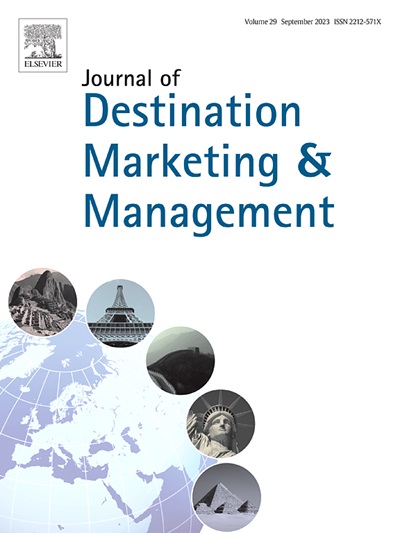Beyond attraction: Unveiling Bali's cultural community's role in bolstering tourism resilience amidst the COVID-19 pandemic
IF 7.4
2区 管理学
Q1 HOSPITALITY, LEISURE, SPORT & TOURISM
引用次数: 0
Abstract
The unique culture of a society is often used as the basis for developing tourism. However, cultural research attached to society seems to only see it as a ‘package,’ not the main essence of that culture. In the context of a crisis, especially the Covid-19 pandemic, Balinese culture has developed into a tool for building resilient tourism. This assumption serves as the foundational premise for this research, aimed at mapping and identifying the variables driving tourism community resilience. The research focuses on Bali, Indonesia's premier tourist destination, and engages six types of tourism stakeholders. Employing a modified approach that combines soft system methodology (SSM) and network analysis, several insights emerge regarding establishing tourism community resilience. The social-cultural dimension, particularly social collectivism, appears as a pivotal factor for the resurgence of tourism during times of crisis. Social collectivism plays a role in restoring resilience cycles in the context of sustainable tourism. The result recommended that it is crucial to comprehend destinations at various levels, ranging from the individual to the state level, to attain tourism community resilience. Establishing sustainable tourism does not imply the centralization of tourism but rather focuses on integrating tourism seamlessly into the existing social-ecological system.
超越景点:揭示巴厘岛文化界在 COVID-19 疫情中为增强旅游业抗灾能力所发挥的作用
一个社会的独特文化往往被用作发展旅游业的基础。然而,依附于社会的文化研究似乎只将其视为一种 "包装",而非该文化的主要精髓。在危机背景下,尤其是在 Covid-19 大流行的情况下,巴厘岛文化已发展成为建设具有抗灾能力的旅游业的工具。这一假设是本研究的基本前提,旨在绘制和确定推动旅游社区复原力的变量。研究以印尼首屈一指的旅游胜地巴厘岛为重点,涉及六类旅游业利益相关者。通过采用软系统方法论(SSM)和网络分析相结合的改进方法,我们得出了关于建立旅游社区复原力的若干见解。社会文化层面,尤其是社会集体主义,似乎是危机时期旅游业恢复的关键因素。在可持续旅游业的背景下,社会集体主义在恢复复原力循环方面发挥着作用。研究结果表明,要实现旅游社区的恢复力,关键是要从个人到国家等不同层面来理解旅游目的地。建立可持续旅游业并不意味着旅游业的集中化,而是侧重于将旅游业无缝融入现有的社会生态系统。
本文章由计算机程序翻译,如有差异,请以英文原文为准。
求助全文
约1分钟内获得全文
求助全文
来源期刊
CiteScore
18.60
自引率
3.60%
发文量
46
审稿时长
43 days
期刊介绍:
The Journal of Destination Marketing & Management (JDMM) is an international journal that focuses on the study of tourist destinations, specifically their marketing and management. It aims to provide a critical understanding of all aspects of destination marketing and management, considering their unique contexts in terms of policy, planning, economics, geography, and history. The journal seeks to develop a strong theoretical foundation in this field by incorporating knowledge from various disciplinary approaches. Additionally, JDMM aims to promote critical thinking and innovation in destination marketing and management, expand the boundaries of knowledge, and serve as a platform for international idea exchange.

 求助内容:
求助内容: 应助结果提醒方式:
应助结果提醒方式:


